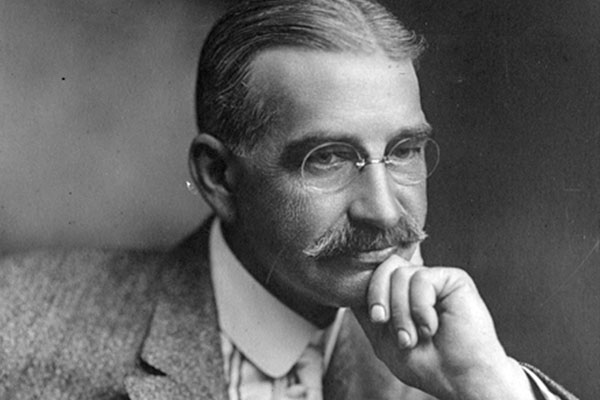By Henry M. Littlefield. L. Frank Baum’s series of 14 Oz books, from The Wonderful Wizard of Oz in 1900 to the posthumous publication of Glinda of Oz in 1920, was phenomenally successful. However, the series has been either attacked or ignored by librarians and critics. The books were removed from the Detroit Public Library in 1957 because, in the words of the library’s director, “There is nothing uplifting or elevating about the Baum series.”
In 1985, the Children’s Literature Association, an international “scholarly” organization, produced a list of “Touchstone” books, “the best works for children of all time,” and left Baum completely off its list. Why? Perhaps it’s the hidden message in the books: read between L. Frank Baum’s lines and see various images—some not so complimentary— of the United States at the turn of the century.
It was a song they had brought with them from Australia and would soon spread to England. Forever afterward it reminded Winston Churchill of those “buoyant days.” Churchill’s nostalgia is only one symptom of the world-wide delight found in an American fairy tale about a little girl and her odyssey in the strange land of Oz. The song he reflects upon came from a classic 1939 Hollywood production of the story, which introduced millions of people not only to the land of Oz, but to a talented young lady named Judy Garland as well. [Read the entire article as PDF…]
Taken from
The Barnes Review, January/February 2003: The Wizard of Oz: A Populist Parable?
VOLUME IX, NUMBER 1
